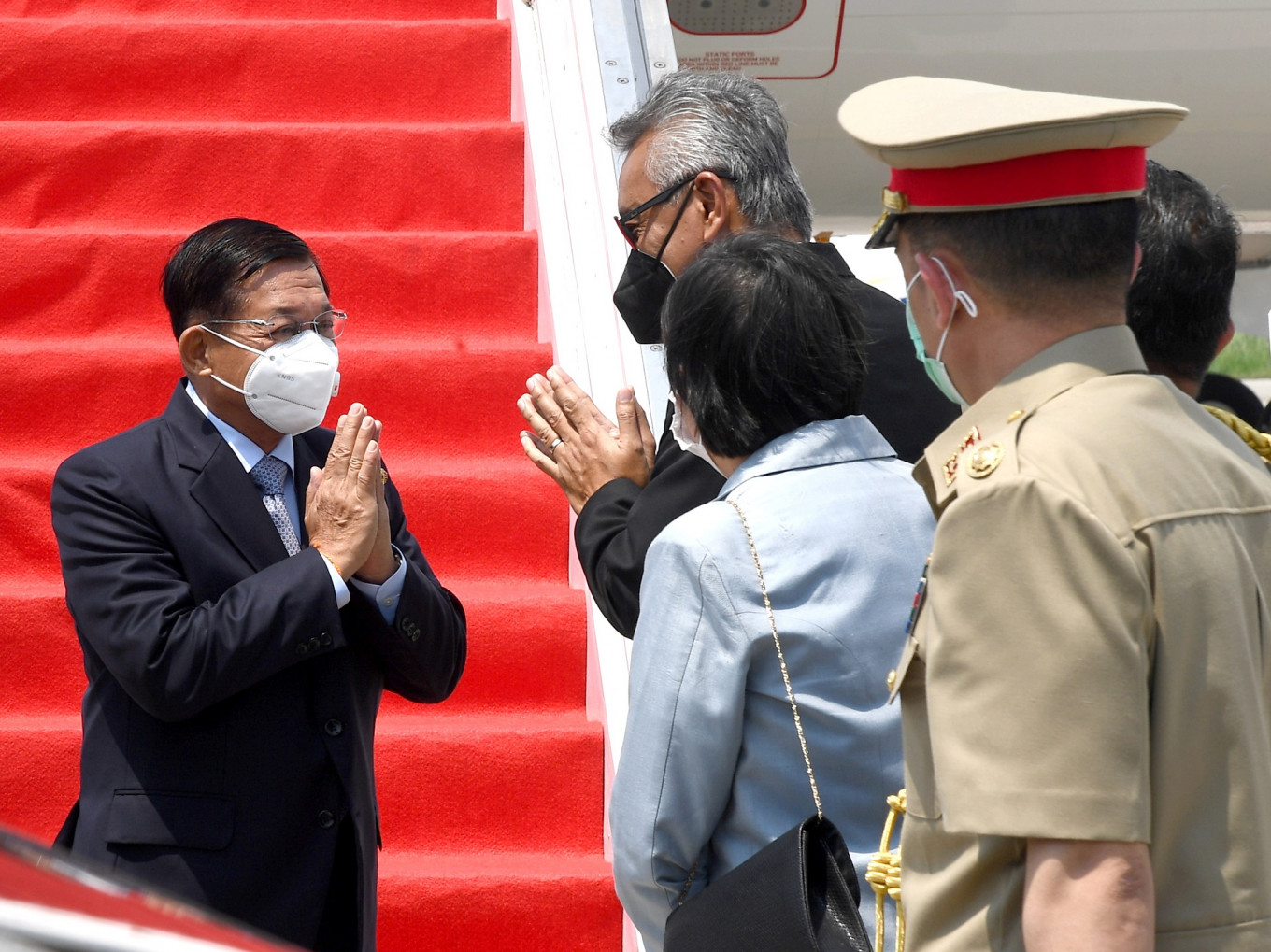Popular Reads
Top Results
Can't find what you're looking for?
View all search resultsPopular Reads
Top Results
Can't find what you're looking for?
View all search resultsUnwanted Myanmar’s junta
The Myanmar general would not have dared to challenge Jokowi had ASEAN’s rotating chairman Brunei strictly implemented its mandate to help restore peace in the impoverished nation.
Change text size
Gift Premium Articles
to Anyone
F
or the first time since its establishment on Aug. 8, 1967, ASEAN has taken a punitive measure against a recalcitrant member. ASEAN foreign ministers have set a precedent by not inviting Myanmar’s junta leader Min Aung Hlaing to this month’s summit of the grouping for defying a five-point deal aimed at settling the crisis stemming from the military coup on Feb. 1.
The decision to boycott Hlaing came despite the ministers’ failure to reach a unanimous decision, but still ASEAN deserves credit for its tough action. Hopefully the bloc will not waste the opportunity simply because some of the ASEAN members support the junta, or else the Myanmar crisis will drag on.
Foreign Minister Retno LP Marsudi needs to push for more concerted measures to isolate the military regime in Myanmar if it pays no respect to the five-point consensus it agreed upon during a special meeting in Jakarta in April. In defying the agreement the junta has not only humiliated President Joko “Jokowi” Widodo, who was behind the ASEAN leaders meeting, but also disappointed ASEAN.
The Myanmar general would not have dared to challenge Jokowi had ASEAN’s rotating chairman Brunei strictly implemented its mandate to help restore peace in the impoverished nation. It was Jokowi who initiated the meeting between the Southeast Asian leaders and the junta at the ASEAN Secretariat in Jakarta.
ASEAN will only permit Myanmar to send a nonpolitical envoy to attend the ASEAN summit to be hosted virtually by Brunei on Oct. 26-28, and to be attended by United States President Joe Biden and Chinese President Xi Jinping and other dialogue partners of the grouping.
Knowing the character of ASEAN, the foreign ministers avoided drastic measures, such as inviting the so-called National Unity of Government of Myanmar, the official representative of the toppled leader Aung San Suu Kyi, to the summit.
Brunei bowed to the pressure from other ASEAN members, notably Indonesia, Malaysia and Singapore, to punish the Myanmar junta for failing to live up to its promise. The three founding members of ASEAN had strongly demanded the military end repression and violence against civilians who refuse to recognize the military regime.
Hlaing appointed himself as a prime minister in August, and promised to hold a free general election. Learning from the history of military juntas in this region, Hlaing could easily break the promise in the way he disrespected the five-point consensus.
The Myanmar case has taught Indonesia a lesson not to rigidly stick to the ASEAN principle of noninterference and consensus-based decision making. As ASEAN’s largest member, Indonesia should take a leading role in restoring democracy in Myanmar, for the sake of the safety of the Myanmar people and the wider region’s peace and stability.










